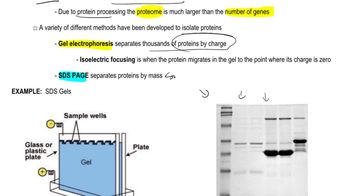An interactive Web site for the Human Proteome Map (HPM) is available at http://www.humanproteomemap.org. Visit this site, and then answer the question.
How many proteins were identified in this project?
 Verified step by step guidance
Verified step by step guidance Verified video answer for a similar problem:
Verified video answer for a similar problem:

